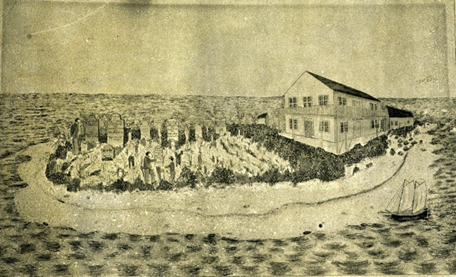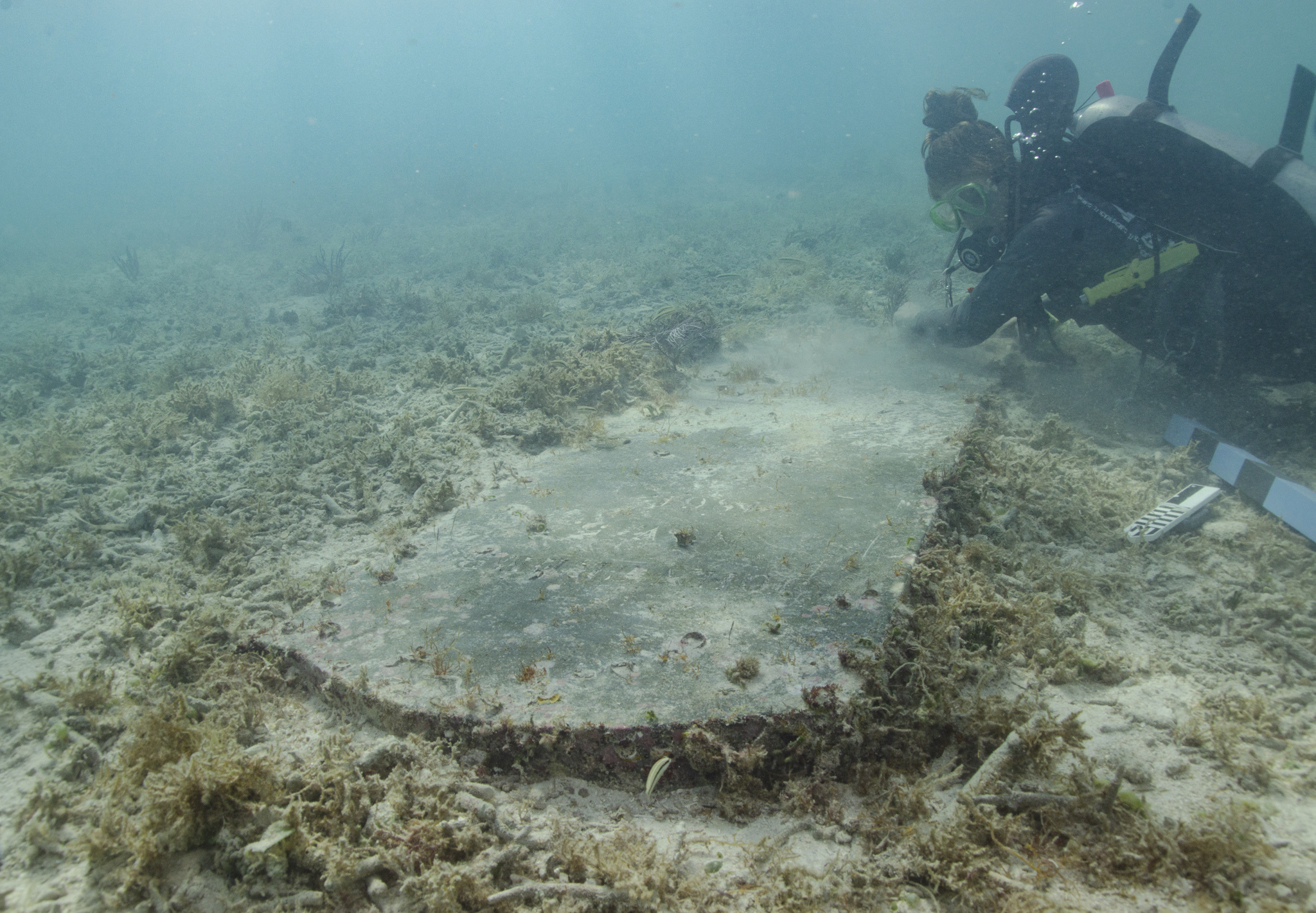Researchers discover submerged cemetery and hospital off the Florida coast

A free daily email with the biggest news stories of the day – and the best features from TheWeek.com
You are now subscribed
Your newsletter sign-up was successful
Archeologists have discovered a submerged island off the coast of Florida that contains the remains of a quarantine hospital and a cemetery, The Washington Post reports.

The site was located in the state's Dry Tortugas National Park, according to a press release from the National Park Service. Though just one grave was identified, "historical records indicate that dozens of people, mostly U.S. soldiers stationed at Fort Jefferson, may have been buried there."
The island was first discovered by Joshua Marano, a maritime archaeologist with the National Park Service, when he noticed what appeared to be a series of dots in an L-formation under the water in Dry Tortugas. Years later, he dove to the area with a team of researchers and discovered the grave of a civilian named John Greer. And the dots, meanwhile, turned out to be "old building foundations that stood on a now-submerged island," the Post writes. "This intriguing find highlights the potential for untold stories in Dry Tortugas National Park, both above and below the water," Marano said in the press release.
The Week
Escape your echo chamber. Get the facts behind the news, plus analysis from multiple perspectives.

Sign up for The Week's Free Newsletters
From our morning news briefing to a weekly Good News Newsletter, get the best of The Week delivered directly to your inbox.
From our morning news briefing to a weekly Good News Newsletter, get the best of The Week delivered directly to your inbox.

Those buried in the cemetery were largely military members that served or were imprisoned at Fort Jefferson. There were also civilians like John Greer, who was discovered to have been a laborer at the fort. "We had no idea, like there was no inkling" about the existence of the grave, according to Devon Fogarty, an archaeology student on Marano's team. "We knew that there are cemeteries out there, that there are grave plots, but we didn't expect anything to be preserved."
Fogarty added: "We want to be able to establish that we can put the extra effort into remembering regular people."
A free daily email with the biggest news stories of the day – and the best features from TheWeek.com
Devika Rao has worked as a staff writer at The Week since 2022, covering science, the environment, climate and business. She previously worked as a policy associate for a nonprofit organization advocating for environmental action from a business perspective.
-
 Trump’s fuel blockade puts Cuba in crisis mode
Trump’s fuel blockade puts Cuba in crisis modeIN THE SPOTLIGHT Plummeting tourism, scrambling airlines and rolling blackouts are pushing Cuban society to the brink
-
 ‘The mark’s significance is psychological, if that’
‘The mark’s significance is psychological, if that’Instant Opinion Opinion, comment and editorials of the day
-
 How did ‘wine moms’ become the face of anti-ICE protests?
How did ‘wine moms’ become the face of anti-ICE protests?Today’s Big Question Women lead the resistance to Trump’s deportations
-
 Blue Origin launches Mars probes in NASA debut
Blue Origin launches Mars probes in NASA debutSpeed Read The New Glenn rocket is carrying small twin spacecraft toward Mars as part of NASA’s Escapade mission
-
 Dinosaurs were thriving before asteroid, study finds
Dinosaurs were thriving before asteroid, study findsSpeed Read The dinosaurs would not have gone extinct if not for the asteroid
-
 SpaceX breaks Starship losing streak in 10th test
SpaceX breaks Starship losing streak in 10th testspeed read The Starship rocket's test flight was largely successful, deploying eight dummy satellites during its hour in space
-
 Rabbits with 'horns' sighted across Colorado
Rabbits with 'horns' sighted across Coloradospeed read These creatures are infected with the 'mostly harmless' Shope papilloma virus
-
 Lithium shows promise in Alzheimer's study
Lithium shows promise in Alzheimer's studySpeed Read Potential new treatments could use small amounts of the common metal
-
 Scientists discover cause of massive sea star die-off
Scientists discover cause of massive sea star die-offSpeed Read A bacteria related to cholera has been found responsible for the deaths of more than 5 billion sea stars
-
 'Thriving' ecosystem found 30,000 feet undersea
'Thriving' ecosystem found 30,000 feet underseaSpeed Read Researchers discovered communities of creatures living in frigid, pitch-black waters under high pressure
-
 New York plans first nuclear plant in 36 years
New York plans first nuclear plant in 36 yearsSpeed Read The plant, to be constructed somewhere in upstate New York, will produce enough energy to power a million homes
